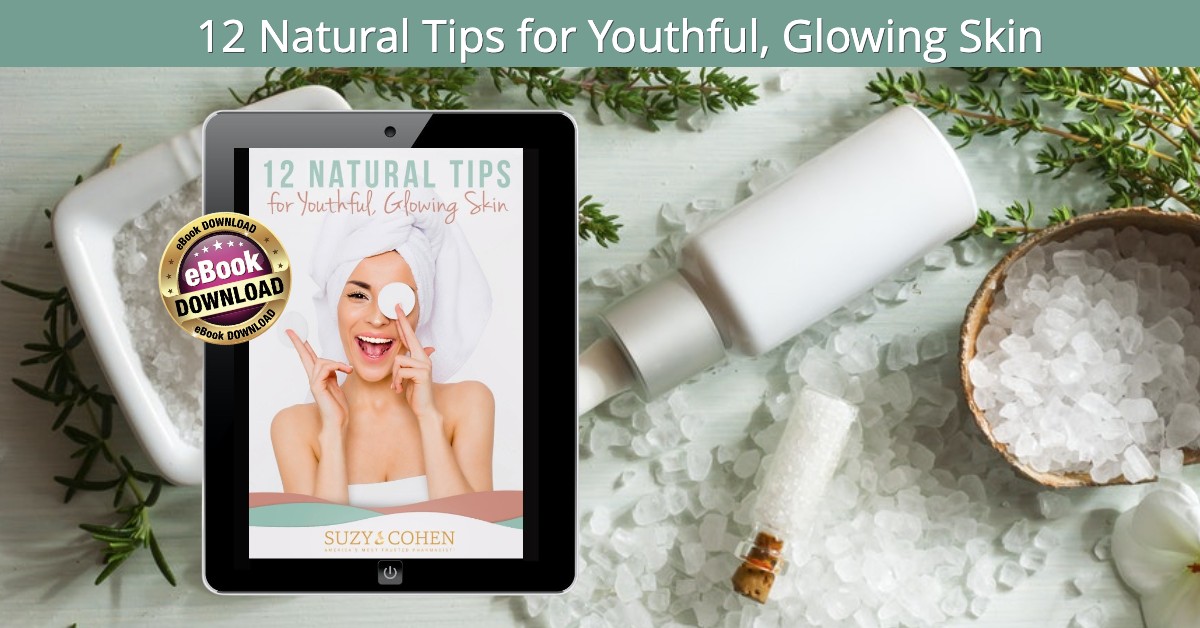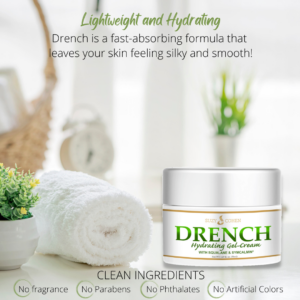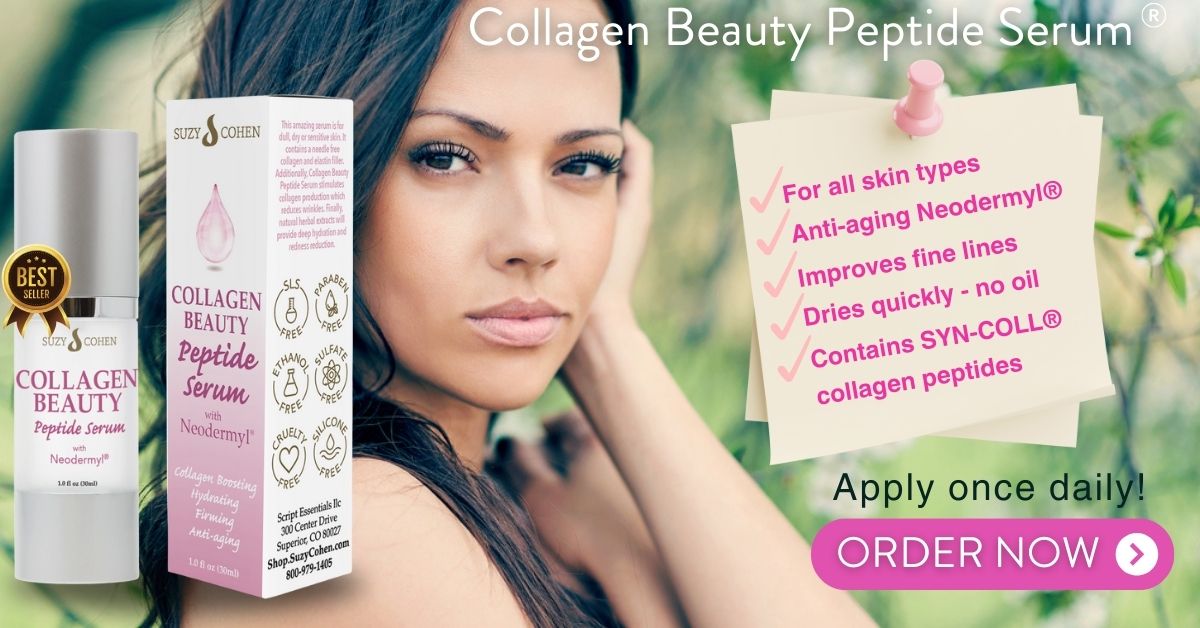What's On This Page?
ToggleEveryone likes to look youthful, and face creams are a quick way to smooth out fine lines and add hydration to your face. Even if this doesn’t apply to you, and you yourself don’t use any skincare, someone you know DOES! I know that because the face cream market is expected to hit $8 billion dollars in the next few years! That’s a lot of face cream! And I can tell you from personal experience, that many of them are not useful, and are sometimes harmful.
By harmful, I mean they may contain ingredients that are aging you faster.
6 Ways to Improve Skin Looking Its Best
- Use a broad-spectrum sunscreen that blocks UVA and UVB
- Avoid bright sunlight, and wear a hat and sunglasses.
- Don’t smoke or drink in excess.
- Keep yourself from getting dry. Stay hydrated.
- Wash your skin gently don’t tug on it.
- Moisturize with a good face cream. I’ll help you decide what’s best for your skin type.
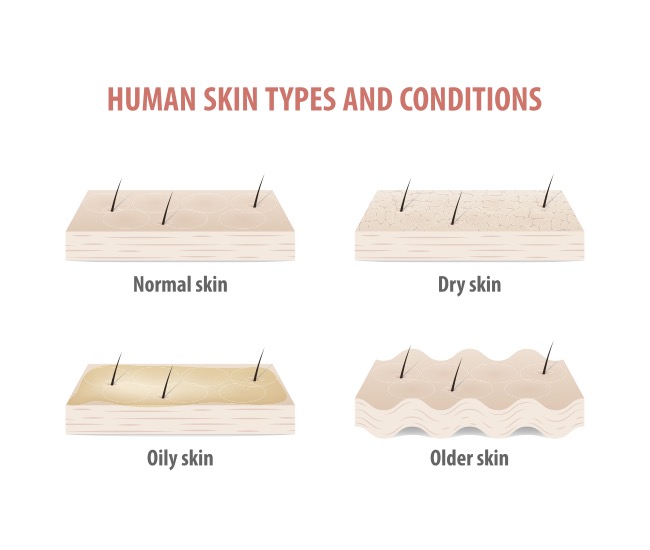
What is your skin concern, do you have one???
- Is it dullness or aging skin?
- Acne and blemishes?
- Blackheads and pores?
- What about wrinkles around your lips or eyes?
- Dry skin, scars, or stretch marks?
If you have skin concerns, you will enjoy my article about dietary supplements that can improve complexion read my article, 5 Supplements for Beautiful Skin.
What is Your Skin Type?
Normal Skin – not too dry, not too oil, not too sensitive either
Combination Skin – Pores may appear larger, areas of oily skin, areas of dry skin
Dry Skin – Almost invisible pores, dull, dry or itchy skin
All of the issues above are common. And moisturizing creams are big business because they promise to address these issues. I love face creams, I’m not going to talk you out of them. I’m going to help you choose a great one. There are many to choose from! But you need information. So here are the 6 main problems that I’ve seen with face creams, and why you should study them before just buying anything. You’ll be shocked when you find out.
The 6 Main Problems with Face Cream
1. They Can Often Feel Greasy
When you apply your face cream, you may wake up in the morning to a greasy face print on your pillow! Or you might apply your makeup (on top of your face cream) and just end up with an oil-looking face. The reason is that most moisturizers contain a lot of different ingredients, but some do not aid in absorption through the skin. they are just there as oils, but if the oil used in cream isn’t close to your own natural type, it just feels greasy after application. (A hydrogel would solve this problem).
FYI, if you have oily skin then an oil-based moisturizer will not suit you because it will exacerbate the situation.
It would be better to use a hydrogel, which is a moisturizer that relies on water. This will help your skin feel soft, smooth, and hydrated without leaving a greasy feeling. People with dry skin can and should use moisturizers that are hydrogels too because they really help soothe and hydrate skin without putting oil on top of the skin. The moisturizing and healing ingredients penetrate inward.
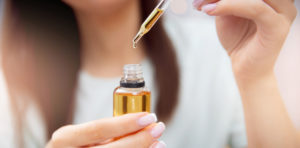
Jojoba is used in many cosmetic applications as an active ingredient but not all. There have been many papers written about the activity of this oil, and how it could benefit dry and fragile skin, as well as scalp conditions and atopic dermatitis. I like this oil, it dries quickly and very closely matches the natural oils on our skin.
That’s why creams with jojoba dry quickly but soothe the skin. I tell you this so you can see what other plant oils are in your own face cream. Some of them (that do not match the skin well) will just sit on top of your skin and feel greasy! It’s a problem.
It’s hard to return an item … for example, let’s say you buy a bad face cream having paid a lot for it, use it for a week or two… and you don’t like it, or you get breakouts… you can’t return it! Some places now don’t let you return things. So before you buy, read the label regardless of the brand name.
The biggest brand names are often the biggest culprits for cheap ingredients because they use their money to pay influencers and celebrities to brainwash you that it’s amazing stuff! The ingredients often come up short, or very chemically.
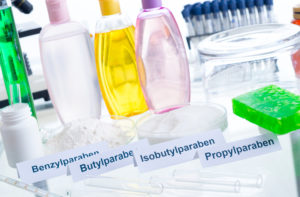
2. The Ingredients Can Increase Risk of Cancer
They contain cancer-causing ingredients – Many face creams today contain parabens and other cancer-causing preservatives. ☠️ If you read the ingredient list and see any word that ends in “paraben” such as methylparaben, then you should choose something different. If you apply a cream with parabens even once daily, you are exposing yourself to endocrine disruptors that are thought to cause many cancers once daily. Everyone in the skin care industry knows that parabens are very hard to avoid, and we all know that they are harmful. They imitate estrogen and therefore drive estrogen-driven cancers.
If you don’t know you have a little microscopic (yet-to-be-seen) tumor, and you use parabens, you may be making yourself worse because of the cream you are using. Everyone who has integrity will avoid putting parabens in their skin care products.
If you know what you’re looking for, and are willing to pay a nickel more, you’ll be doing yourself a great favor because there are many choices for preservatives! Parabens don’t have to be used. Makers use them because they are either cheap, uninformed, or don’t care about you. (A natural preservative would solve this problem).
The same warning goes for formaldehyde-related ingredients which will not be listed on the label as “formaldehyde.” But makers get crafty, it could still be in there because what they do is add other chemicals that bind together and form a different chemical. When that decomposes, formaldehyde is formed! This is rude and dangerous and happens all the time. Formaldehyde is a dangerous skin sensitizer and many people will react to it. It’s also a known carcinogen.
You may not see formaldehyde listed as an ingredient, but it could still be in there. This one is tricky because companies don’t just dump a bunch of formaldehyde into their products. Instead, they add other chemicals that work together as they decompose to release formaldehyde. Tricky, right? And so not nice. Formaldehyde is a known skin sensitizer, allergen, and carcinogen.
3. The Vitamin C They Use is All Wrong
The vitamin C they put in some products is useless. I see very pricey moisturizers boasting vitamin C in their formulas. While it’s true that this nutrient is beneficial for skin care, it is also true that certain (most!) forms of C do not even work on the skin as advertised. There is a type of skin-penetrating, highly effective type of vitamin C that only the highest-quality face creams contain. (A topical kind of Vitamin C like BV-OSC would easily solve this problem). That is what’s inside Drench Hydrating Gel Cream – it’s all clean, bioavailable ingredients!
BV-OSC is a highly active topical form of vitamin C – it is not orange extract, orange essential oil, or ascorbic acid. It is a concentrated form of the part of Vitamin C that actually promotes collagen synthesis. It is very stable and considered desirable for cosmetic use. It is very reliable and does not degrade inside the formula that it is added to.
BV-OSC is a far more superior type of vitamin C that helps increase your collagen production. If your product label says “ascorbic acid” you can’t rely on that. The gold standard is BV-OSC because again, it is a highly stable lipophilic (fat-soluble) type of skin Vitamin C. There are over 30 tests that prove its usefulness in applications for brightening the skin, conferring antioxidant protection, or helping with complexion brightening and dark spots.
4. Some Face Creams Only Wet the Surface
Face creams usually just increase surface moisture only. So this is hard to explain but I’ll try. Most face creams feel good on your skin and you think they’re working. But they’re only ‘wetting’ the surface for a temporary period of time. A genuinely good face cream contains an emollient that penetrates into the tiniest cells of your skin matrix and plumps from the inside out. To address this, many cosmetic manufacturers started putting squalane into their formulas. Squalane occurs naturally in your skin by the way.
But anyway, big names in the beauty industry started putting squalane in their face creams, unfortunately, they could be getting it from shark liver. Eeew. I mean, yuck! (Olive-derived squalane would solve this problem).
5. Steroids are Hidden in Some Face Creams
Many people will apply a daily moisturizing cream without realizing that they contain steroids. And if you use this type of cream to get lighter, cleaner/clearer skin or a glowing complexion, you may unknowingly be aging yourself! The reason is that use of steroids on the face for a long time (more than a few weeks) will cause thinning of the skin, and fungal infections which can become very severe. Creams like this are sold over the counter and are also sold at the dermatologist’s office. They are sometimes labeled as herbal creams, or ayurvedic.
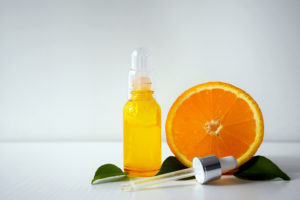
Be sure to see if your cream contains a steroid because those are NOT for daily use. If it does, you do not want to apply that long-term. Also, sometimes a facial esthetician will apply a face cream to help with problems on the skin, and that is totally okay as a one-time thing, or even for a week or two, but it should not become a daily application. (A steroid-free moisturizer would help you avoid this problem which is more common than you think).

6. Face Creams Can Get Expensive
Last on my list – but not least – high-quality face creams cost a small fortune – I’ve gone to stores where high-end luxury products are sold and were mortified by the price tag! Who wants to spend $75 or $150? I saw one that was $250 being sold in them all at a kiosk!
Nowadays, brand-name products hire influencers to sell their new products. It’s part of their product launch, and essentially, let’s face it, influencers do just that! They influence you, they manipulate you. That’s their job. It doesn’t speak to the quality of the product they’re pitching. In earlier times, when I was growing up, there were no Instagram influencers, we only had celebrity branding back then. That’s why they put Hollywood celebrities and athletes on the packaging, and on commercials.
Some are promoted by influencers or celebrities so the makers have to pay millions of dollars to license J. Lo’s image, for example, and then they pass that expense on to us consumers. While these formulas are fine, and maybe even effective, it’s hard to justify that expense right now with the economy.
So what happens is you buy it once maybe… and that’s the end of it. I can assure you that if the same money were used to improve the ingredients, rather than pay a star, you’d buy that product more often. We ultimately buy what works, not what we were influenced to buy. (Not hiring expensive celebrities, or having a middleman, would solve this problem)!
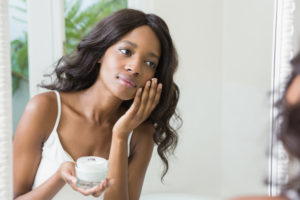
How to Apply Face Cream
Some folks think that applying more moisturizer dry skin will speed up the moisturizing process but this is not true. Your skin will only absorb a certain amount no matter how much of it you rub in. This is a common mistake, and one that may make your face feel (and look) shiny or oily. The time of application may matter for some of you. The best way to apply moisturizer is to use a nickel-sized amount for your entire face.
Apply to moist or wet skin – this helps seal in more moisture. You can use a toner or just plain water.
Dab it on your face before rubbing it in. Dab all over your face and neck.
Massage it in gently, and stroke it upward, not downward. Try not to drag your facial skin down.
Don’t forget your neck, sometimes we make up and moisturize our face, to make it look more youthful, but then our neck reveals the truth, so always do your neck too!
Make sure to use a gentle approach when putting it on your skin. Moisturizers should be applied to clean, moist skin after you cleanse your face to seal in moisture. Massage the product onto your face so that it absorbs it better. Gentle massaging also helps with circulation and collagen production. If you are interested in more information about skincare and peptides that are anti-aging, you will enjoy my other article, The Best Peptides for Your Skin and Their Purpose.

Suzy Cohen, has been a licensed pharmacist for over 30 years and believes the best approach to chronic illness is a combination of natural medicine and conventional. She founded her own dietary supplement company specializing in custom-formulas, some of which have patents. With a special focus on functional medicine, thyroid health and drug nutrient depletion, Suzy is the author of several related books including Thyroid Healthy, Drug Muggers, Diabetes Without Drugs, and a nationally syndicated column.
